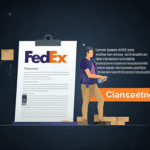Securing Your Ecommerce Business with Insurance
As ecommerce businesses continue to grow and thrive, so do the potential risks and challenges associated with these ventures. Whether you operate an online retail store, launch a subscription-based service, or run a marketplace platform, it's crucial to protect your business with the right type of insurance coverage. In this article, we'll delve into the various types of policies available for ecommerce businesses, the benefits of having a comprehensive insurance plan, and how to navigate the claims process to minimize losses.
Understanding the Risks of Running an Ecommerce Business
While the convenience and accessibility of ecommerce make it an attractive business model, it also comes with inherent risks. Some of the most common concerns for online businesses include data breaches and cyber attacks, product liability, intellectual property infringement, trademark violations, and fraudulent chargebacks. According to a 2023 IBM report, the average cost of a data breach reached $4.45 million, highlighting the financial impact of cyber threats. These threats can cause significant financial losses, damage to your reputation, and legal issues. Understanding these risks is the first step in protecting your ecommerce business with the right insurance policy.
One of the biggest risks for ecommerce businesses is the potential for shipping and delivery issues. Customers may experience delays, lost packages, or damaged goods, which can lead to negative reviews and a loss of trust in your brand. It's important to have clear policies and procedures in place for handling these types of situations, as well as working with reliable shipping partners like ShipScience.
Another risk to consider is the impact of changing regulations and laws on your business. As ecommerce continues to grow, governments around the world are implementing new rules and regulations to protect consumers and ensure fair competition. For example, the European Union's General Data Protection Regulation (GDPR) and the United States’ evolving data privacy laws require businesses to stay compliant or face hefty fines. Keeping up with these changes can be challenging, but failing to do so can result in fines, legal issues, and damage to your reputation.
Types of Insurance Coverage for Ecommerce Businesses
As an ecommerce business owner, you may need several types of insurance coverage to safeguard against different risks and liabilities. The most common policies for online businesses include:
- General Liability Insurance - Protects against claims of third-party bodily injury or property damage.
- Product Liability Insurance - Covers damages or injuries caused by a defective product you sell or manufacture.
- Cyber Liability Insurance - Guards against losses caused by data breaches, cyber attacks, and other online threats.
- Business Interruption Insurance - Compensates for lost income and expenses in the event of a disruption or outage.
- Workers' Compensation Insurance - Provides benefits to employees who are injured on the job.
It's important to note that insurance needs may vary depending on the nature of your ecommerce business. For example, if you sell products that are considered high-risk or have a history of product liability claims, you may need additional coverage. Additionally, if you have employees who handle sensitive customer information, you might consider adding a fidelity bond to protect against employee theft or fraud. Consulting with an insurance professional can help determine the best coverage options for your specific business needs.
Choosing the Right Insurance Provider for Your Ecommerce Business
When selecting an insurance provider, it's essential to consider their experience in working with ecommerce businesses and their ability to tailor policies to your unique needs. Look for insurers who specialize in the type of coverage you need and have a track record of handling claims efficiently and effectively. Resources like Business Insurance can help you compare providers.
Another critical factor is customer service. You want to work with a company that is responsive and easy to communicate with, especially in the event of a claim. Providers that offer 24/7 support and have a reputation for being helpful and accommodating can make the claims process smoother and less stressful.
Finally, regularly review and update your insurance coverage as your business grows and evolves. As you add new products or services, expand into new markets, or hire additional employees, your insurance needs may change. Partner with a provider willing to adjust your coverage to ensure that you're always adequately protected.
The Importance of Cyber Liability Insurance for Ecommerce Businesses
Cyber liability insurance is increasingly important for ecommerce businesses that collect, process, and store sensitive customer information. This policy can cover a range of losses, such as data breaches, hacker attacks, and cyber extortion. It can also provide coverage for legal fees, crisis management expenses, and the cost of notifying affected customers. According to the 2023 State of Cybersecurity Report, cyber attacks are on the rise, making cyber liability insurance a must-have for ecommerce businesses of any size.
One significant advantage of cyber liability insurance is that it can help ecommerce businesses recover quickly from a cyber attack. The policy can provide access to a team of experts who can help identify and contain the breach, as well as restore any lost data. This support is especially important for small businesses that may lack the resources to handle a cyber attack independently.
Additionally, cyber liability insurance can help ecommerce businesses build trust with their customers. By having this type of insurance in place, businesses demonstrate a commitment to securing their customers' information. This assurance can be a powerful marketing tool, as customers are more likely to trust and do business with companies that prioritize their privacy and security.
Protecting Your Business from Fraud and Chargebacks with Insurance
Fraudulent chargebacks can be a significant source of loss for ecommerce businesses, particularly those that sell high-ticket items or provide digital services. Chargeback insurance helps protect your business from these types of losses by reimbursing you for the cost of chargebacks due to fraud or unauthorized transactions. This policy can also cover other common types of fraud, such as account takeovers and identity theft.
How to Determine the Right Amount of Insurance Coverage for Your Ecommerce Business
The amount of insurance coverage your ecommerce business needs depends on several factors, including the size of your business, the type of products or services you offer, and the level of risk you're willing to accept. Evaluating your specific risks and liabilities is crucial to determining the appropriate level of coverage. Consider working with an experienced insurance agent or broker who can help assess your needs and customize a policy that fits your budget and business requirements.
Common Mistakes to Avoid When Purchasing Insurance for Your Ecommerce Business
When shopping for insurance for your ecommerce business, it's important to avoid common mistakes that can jeopardize your coverage and financial stability. Some common errors include:
- Underestimating Your Risk Exposure: Failing to recognize all potential risks can leave gaps in your coverage.
- Overlooking Policy Exclusions or Limitations: Not understanding what your policy does and does not cover can lead to unexpected out-of-pocket expenses.
- Failing to Research or Compare Providers: Settling for the first provider you encounter may result in suboptimal coverage or costs.
To avoid these pitfalls, take the time to carefully evaluate your insurance options, read policy terms and conditions thoroughly, and work with a reputable insurance provider.
Steps to Take After a Loss or Claim in Your Ecommerce Business
If your ecommerce business experiences a loss or needs to file a claim, acting quickly and decisively is essential to minimize losses and protect your business interests. Important steps include:
- Document the Loss or Incident: Keep detailed records of what happened, including dates, times, and the extent of the damage.
- Contact Your Insurance Provider: Notify your insurer as soon as possible to initiate the claims process.
- Cooperate with the Claims Adjuster: Provide all necessary information and documentation to facilitate a smooth and timely claims process.
By taking swift and effective action, you can help ensure a successful and timely insurance claims process.
The Benefits of Having a Comprehensive Insurance Plan for Your Ecommerce Business
Having a comprehensive insurance plan for your ecommerce business offers several benefits:
- Peace of Mind: Knowing that you're protected against financial losses and liabilities allows you to focus on growing your business.
- Customer Trust: Demonstrating your commitment to customer satisfaction and security can help attract and retain customers.
- Quick Recovery: The ability to recover swiftly from unexpected interruptions or losses minimizes downtime and maintains business continuity.
- Risk Mitigation: Protecting your business against various risks ensures long-term stability and growth.
Understanding the Claims Process and How to File a Claim for Your Ecommerce Business
Filing a claim against your ecommerce insurance policy requires understanding the claims process and submitting a claim effectively. Your insurance provider should offer clear instructions and guidance on how to file a claim, including what documentation is required and what information you'll need to provide. Follow these steps to ensure a smooth and successful claims process:
- Review Your Policy: Understand your coverage, including what is and isn't covered.
- Gather Documentation: Collect all necessary evidence, such as receipts, photos, and any correspondence related to the loss.
- Submit the Claim Promptly: Timely submission can expedite the processing of your claim.
- Maintain Communication: Stay in touch with your insurance provider and respond promptly to any requests for additional information.
Tips for Keeping Your Insurance Premiums Low while Maintaining Adequate Coverage
While insurance is a vital investment for ecommerce businesses, it can also represent a significant cost. To keep your insurance premiums low while still maintaining adequate coverage, consider the following tips:
- Shop Around: Obtain multiple quotes and compare coverage and costs from different providers.
- Bundle Policies: Combining multiple policies with the same provider can often lead to discounts.
- Invest in Risk Mitigation: Implementing strategies like strong cybersecurity measures can lower your overall risk profile, potentially reducing premiums.
- Work with an Experienced Agent: An insurance agent or broker can advise you on how to minimize costs without sacrificing coverage.
Best Practices for Managing Risks and Mitigating Losses in Your Ecommerce Business
The best way to protect your ecommerce business from potential losses and liabilities is to minimize your risk exposure from the outset. Some effective strategies for managing risks and mitigating losses include:
- Implement Strong Cybersecurity Measures: Protect against data breaches and cyber attacks by investing in robust security systems.
- Conduct Regular Background Checks: Screen employees and contractors to reduce the risk of internal threats.
- Create Comprehensive Policies and Procedures: Manage product liability and ensure quality control through detailed guidelines.
- Regularly Review Insurance Policies: Ensure your coverage keeps up with your evolving business needs by conducting periodic reviews.
How to Evaluate and Update Your Insurance Policy as Your Ecommerce Business Grows
As your ecommerce business grows and evolves, so too will your insurance needs. Regularly evaluating and updating your insurance policy is essential to ensure adequate coverage and protection. Consider factors such as changes in your product line, increases in revenue or sales volume, and shifts in your business structure or operations. Collaborating with an experienced insurance provider can help you stay on top of these changes and ensure that your policy remains effective and up-to-date.
Top Considerations When Shopping Around for Insurance Quotes for Your Ecommerce Business
When shopping for insurance quotes for your ecommerce business, keep several key considerations in mind:
- Coverage Needs: Determine the type and amount of coverage required to adequately protect your business.
- Provider Reputation: Research the track record and reputation of the insurance provider to ensure reliability.
- Cost and Deductibles: Evaluate the cost of premiums and the deductibles associated with the policy.
- Discounts and Promotions: Look for bundled discounts or special promotions that can reduce costs.
- Customer Service: Assess the level of customer service and support provided by the insurance provider.
Conclusion
Securing your ecommerce business with the right insurance coverage is essential for protecting your financial stability and minimizing risk exposure. By understanding the different types of insurance policies available, evaluating your specific needs and risks, and working with an experienced insurance provider, you can ensure that your online business is well-protected and positioned for long-term success.






















